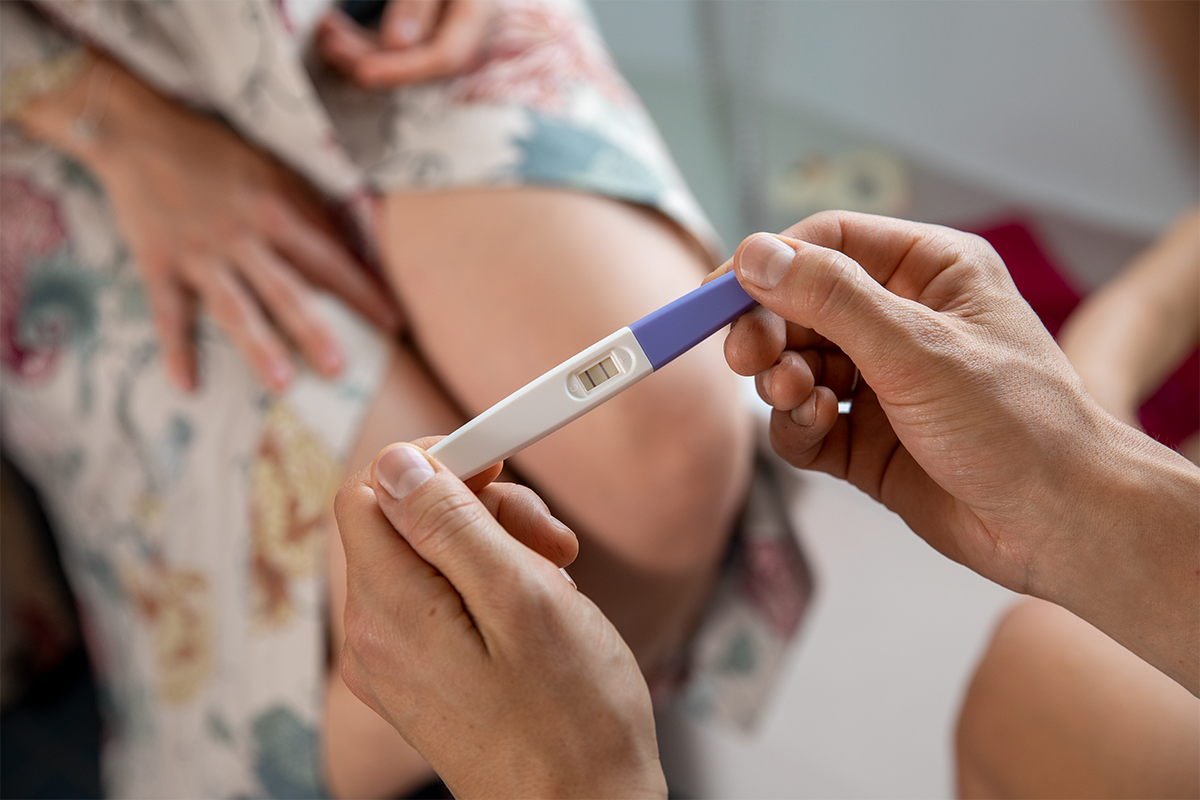How a fertility investigation is performed
A fertility investigation, or infertility evaluation as it is also called, can provide answers as to why you are unable to get pregnant despite all your best efforts. In this article we discuss how a fertility investigation is performed, and who you should contact if you need help.
Some women fail to get pregnant despite their best efforts, and in such cases it is possible to receive help through a fertility investigation. In other words, an investigation that attempts to identify a cause so that the right type of treatment can be initiated. The actual investigation itself often takes a couple of months (sometimes a little longer) and usually involves at least 3–4 physical visits. When it is finished, you will often be able to commence some form of treatment.
Who should I contact if I want to arrange a fertility investigation?
A fertility investigation can be arranged privately or via the public healthcare service. In other words, this type of help is available via gynaecology clinics, women’s health clinics or specialised fertility clinics. If you don’t want to contact a specific clinic directly, you can contact your local medical centre or midwifery service for guidance.
Who is entitled to receive a fertility investigation?
It is important to check the rules that apply in the country where you live. For example, in order to qualify for a fertility investigation, it may be a requirement that you have been trying to get pregnant for a certain amount of time. Special rules may also apply to women who are having difficulty getting pregnant and have reached a certain age, as fertility decreases with age, or to women for whom it is suspected that there may be medical reasons for their infertility. In the latter case, you should contact your doctor at an early stage in order to receive help more quickly. Furthermore, there may be other situations in which you can apply for help immediately, such as in the case of single women or lesbian couples who want to have a child.
There may also be certain requirements in the country where you live that must be met in order for a fertility investigation to be paid for by the state. In the case of couples, for example, such requirements could include: (H3)
- The woman who is to carry the child may not be over a certain age.
- The woman may not have a BMI over a certain level.
- The woman’s partner may not be over a certain age.
- The couple must have lived together and had a stable relationship for a certain period of time.
- The couple must not already have children together.
- The couple must not have chosen voluntary sterilisation (in a same-sex relationship, this type of requirement may only apply to the person who intends to get pregnant).
For single women who want a fertility investigation to be paid for by the state, there could be requirements such as: (H3)
- The woman may not be over a certain age.
- The woman may not have a BMI over a certain level.
- The woman must not have chosen voluntary sterilisation.
- The woman must not already have children (biological or adopted).
As already mentioned, it is important to find out the rules and requirements that apply in your particular country. For those who don’t meet such requirements, contacting a private fertility clinic is usually an alternative course of action. Naturally this is more expensive but, on the other hand, the waiting times may be shorter.
Can I check my fertility myself?
You may have heard or read about various fertility tests that you can do at home to check your fertility, and you may therefore be wondering: what is the difference between such tests and a fertility investigation performed via a clinic? Well, many such “fertility tests” are actually just an ovulation test sold under another name – in other words, products that help you work out which days you have the greatest chance of getting pregnant. Sometimes the term “fertility test” is also used by private laboratories that you can visit to provide a blood sample in order to measure the hormone levels in your body. And while it can certainly be good to keep an eye on your hormone levels, it is also important to be aware that involuntary infertility may be due to many other factors. So before you invest too much money and hope in your own tests, it may be worth knowing that, in order to obtain a meaningful overall assessment, you need to perform a fertility investigation via a clinic.
How much does a fertility investigation cost?
First and foremost, it is of course important to find out the costs that apply in the country where you live. However, if it is funded by the public healthcare service, the actual investigation may only cost the same as a regular doctor’s visit, per person and visit. On the other hand, an investigation arranged via a private clinic will be more expensive. It is also important to be aware that the cost of the investigation may vary depending on which clinic you choose, as well as the number of tests, samples and visits involved. And once the investigation is completed, you will also be faced with the cost of any treatment that is initiated thereafter.
How is a fertility investigation performed?
To begin with, you will usually meet with a doctor who explains what the investigation involves. You and the doctor will then usually discuss your medical history, any medications you are taking or have taken, your current health status and whether you have ever been pregnant before – so that the doctor can gain a clear picture of the situation. After these discussions, the investigation continues with different types of fertility tests and samples. In the case of a bisexual couple, tests are performed on both the man and the woman, as it is just as common for the cause of involuntary infertility to be related to the man’s sperm as the woman’s eggs and uterus.
What tests and samples are included in a fertility investigation?
There may be various reasons as to why it is difficult to get pregnant, and therefore both the woman and the man are usually examined thoroughly. The types of tests and examinations performed may vary somewhat depending on which clinic you visit, but they often involve:
- Blood samples
- Gynaecological examination with ultrasound
- Sperm sample (in the case of a bisexual couple)
Blood sample to check hormone levels [H3]
The sperm must reach the egg at the right time in order for the egg to be fertilised, and it is therefore very important to map the ovulation cycle, so that it is possible to time sexual intercourse on the right days. Ovulation is checked, among other things, through a blood sample that measures your hormone levels. If it turns out that ovulation is not occurring as it should, a typical first step is for the doctor to prescribe hormones that induce ovulation. For some women, this is sufficient for them to get pregnant. The woman in the investigation may also be asked to provide a blood sample to check that her thyroid gland is working as it should (if it isn’t, there is medication available). Sometimes, the man is also asked to provide a blood sample in order to check the hormone levels in his blood, and to enable analysis of his chromosomes.
Ultrasound to check the uterus and ovaries, among other things [H3]
The doctor will often want to do a vaginal ultrasound, to check the uterus and ovaries. Another examination is also often performed to enable the doctor to take a closer look at the inside of the uterus, to make sure that everything looks good, and to check that there is a passage between the fallopian tubes.
Sperm sample [H3]
In the case of a bisexual couple, the man will be asked to provide a sperm sample so that the doctor can check the number of sperm and their mobility. If it turns out that the man has fewer sperm than normal, or if his sperm are not moving as well as they should, the scrotum and testicles are usually also examined to see if it is possible to determine the reason for his impaired sperm production.
What happens after a fertility investigation?
When the fertility investigation is finished and as many facts as possible have been collected, it is possible to start discussing the most suitable course of treatment. In some cases it is not possible to identify the reason why it is difficult for the woman to get pregnant, and such situations are usually referred to as unexplained infertility. But even if you never manage to find out the reason for your infertility, you are still entitled to receive help in the form of assisted reproduction.
There are a number of different treatments and methods that can be initiated after a fertility investigation. For some women, it is sufficient with hormone treatment to stimulate and induce ovulation, while other women may need help in the form of assisted reproduction, such as IVF. But the investigation may also lead to the conclusion that the man and/or woman first need to change something in their health or lifestyle habits in order to increase their fertility.
Please note that all information above is based on Swedish recommendations.



